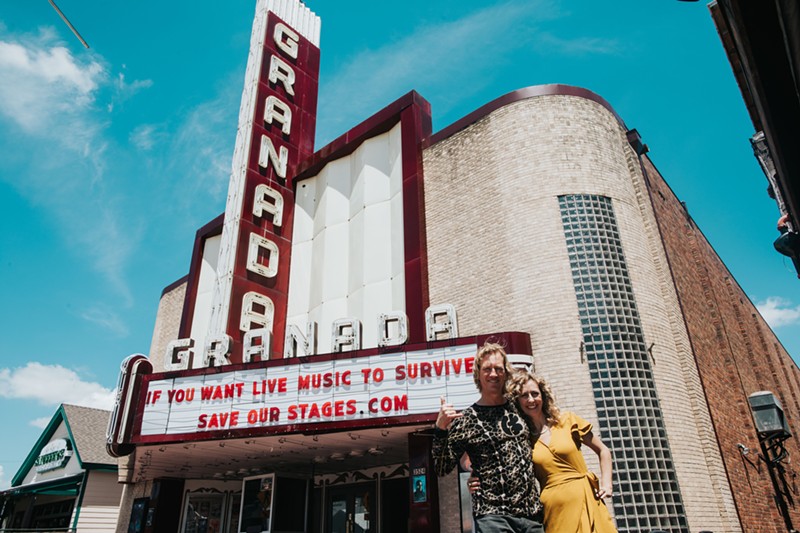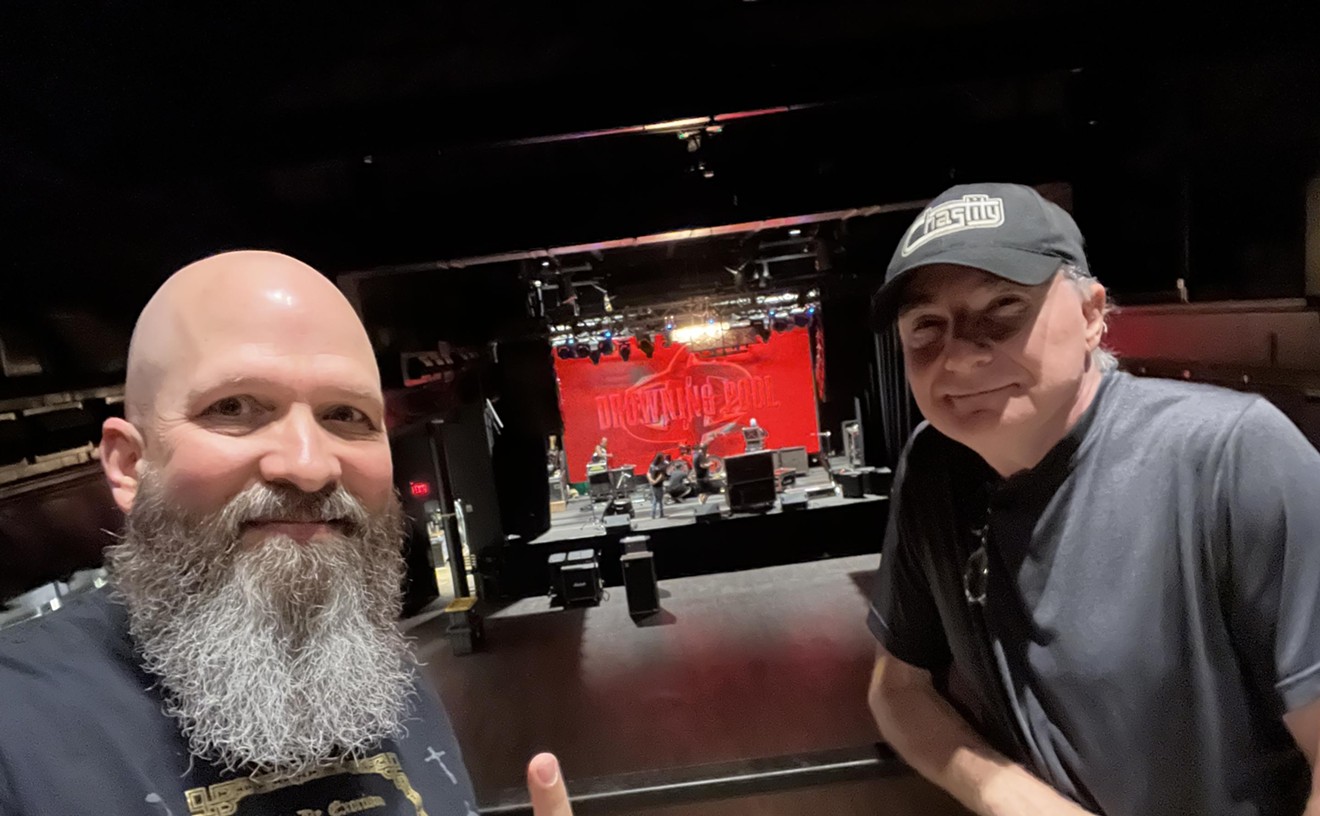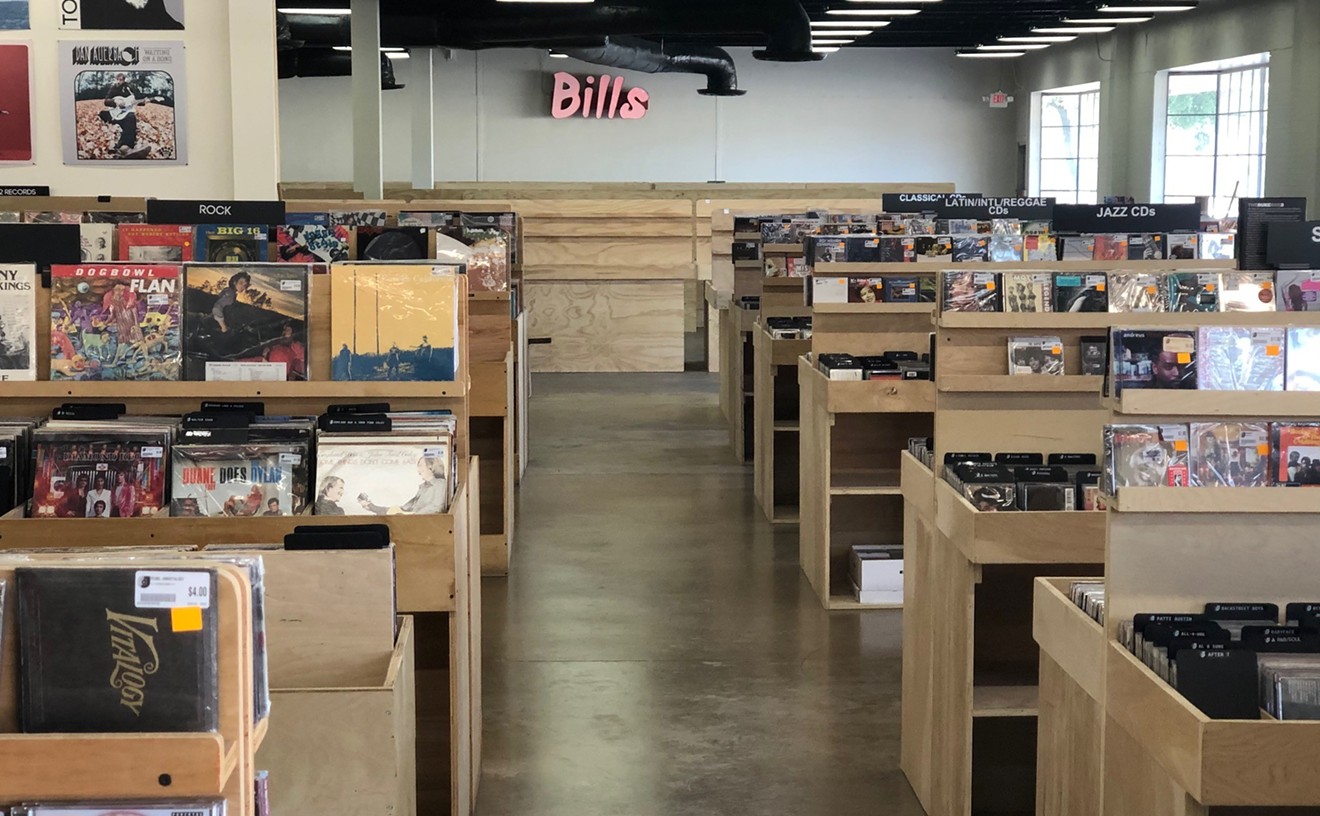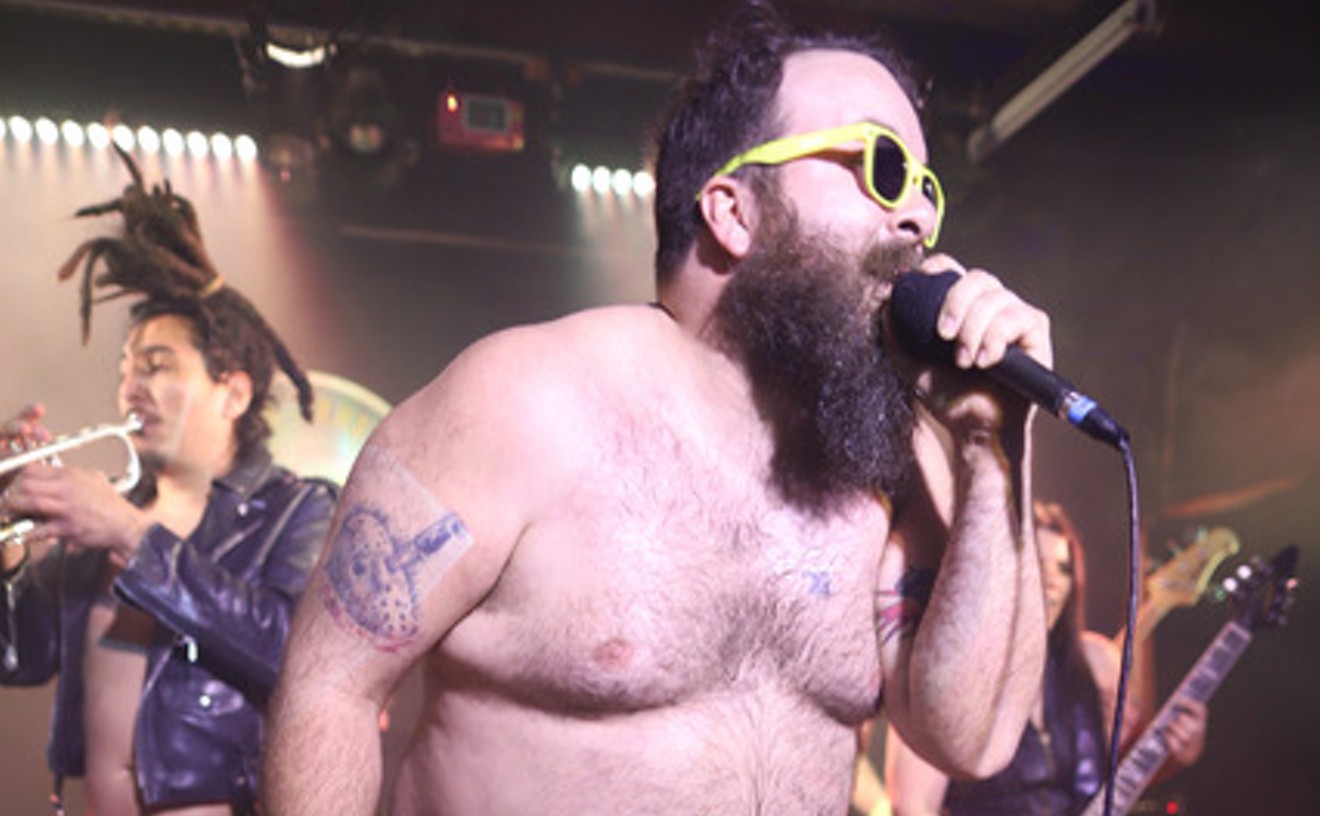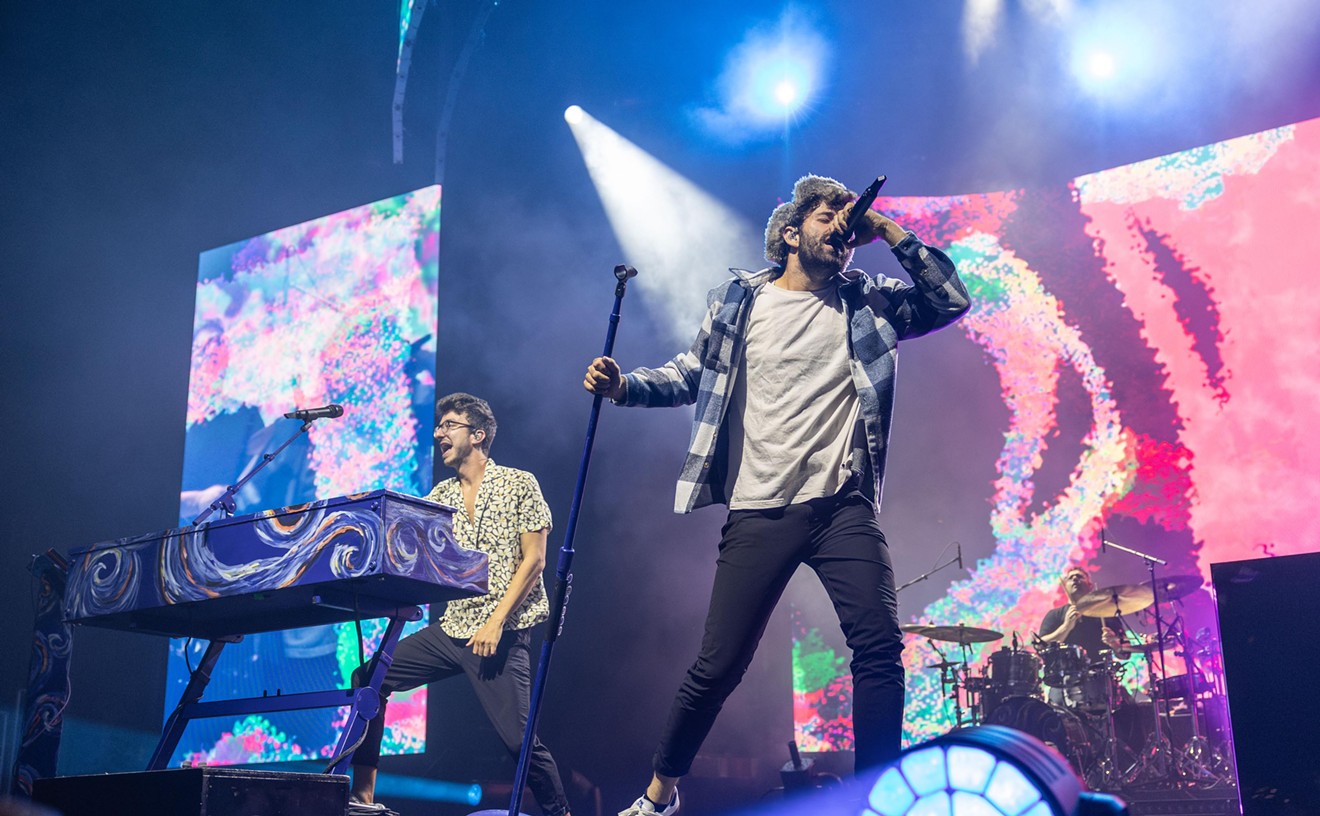The Granada Theater on Lower Greenville is a piece of living art. The one-time theater and current music venue has been showcasing performances, movies and concerts since it was first built in 1946. Despite the widespread need for artistic escapism to ignore the trials of current reality, The Granada has had to postpone its shows for the foreseeable future, like so many others.
The venue's temporary closing did allow the Granada to undergo renovations, however, and now the building breathes a new life and highlights the arts of the venue's original era.
Owners Mike Schoder and Julia Garton seized the opportunity to undergo renovations to The Granada once shows started slowly backing out and dissolving away in the past few months.
“We really wanted to bring it back to the original," Schoder says of the look. "We felt like protecting the building's integrity and being true to the era.”
The two have had no shortage of projects demanded by the building in order to keep it running and up to code, but the additional open time allowed for an artistic overhaul.
Among the most striking and recognizable details in The Granada are the three large murals original to the building on both walls and ceiling of the main space. The murals reflect the history of the time, from President Harry S. Truman to the Manhattan Project and the atomic bomb. The paint surrounding the murals has changed over the years, and its restoration is no easy task.
“It's a slightly tedious task to get up there to dab; you don't use a brushstroke, you dab to keep its original dimension,” Schoder says.
After getting into contact with a paint historian, the couple was able to isolate and identify the original paint color of the walls and match it to a current standard.
“Even with a couple guys working six days a week, it was a couple weeks' process,” Schoder says with a laugh.
The Granada is no stranger to updates.
“We do something, some kind of major project, almost every year we’ve been here,” Schoder says.
From repairs on items such as the roof and exterior to major overhauls on electrical systems and upgrades to the stage and sound system, there’s seemingly always something that needs to be changed, upgraded or repaired in the nearly 75-year-old building.
The repairs and upgrades come at a cost. Amid COVID-19 worries, music and performance venues are particularly hard hit, in both current ticket sales and future bookings.
“For us, the building just sitting here is over $50,000 a month, and that's with an absolute skeleton crew," Schoder says. “So the same predicament is at every venue throughout the U.S. ... They’re facing an extinction of venues.”
The Granada maintains some revenue by continuing to serve customers at the Sundown at Granada, the restaurant adjoining the theater, so they are able to survive for now. They've also joined the National Independent Venue Alliance which has rallied owners like Schoder and Garton to push for passage of the Save Our Stages Act to establish grants for operators of small live venues and talent representatives.
The bill was introduced in the Senate July 29 and would grant billions in aid to independent live venues.
For Schoder and Garton, the fight is about keeping the entire community afloat.
“They say for every dollar spent at a venue, there are 12 dollars spent in the community,” Garton says.
Side businesses also benefit and often depend on the artistic community — like restaurants, merch shops and transportation.
The Granada is up to the challenge of being prepared when the time comes to reopen, and they’re ensuring that one paint stroke at a time.
[
{
"name": "Air - MediumRectangle - Inline Content - Mobile Display Size",
"component": "18855504",
"insertPoint": "2",
"requiredCountToDisplay": "2",
"watchElement": ".fdn-content-body",
"astAdList": [
{
"adType": "rectangle",
"displayTargets": "mobile"
}
]
},{
"name": "Editor Picks",
"component": "17105533",
"insertPoint": "4",
"requiredCountToDisplay": "1",
"watchElement": ".fdn-content-body",
"astAdList": [
{
"adType": "rectangle",
"displayTargets": "desktop|tablet"
},{
"adType": "rectangle",
"displayTargets": "desktop|tablet|mobile"
}
]
},{
"name": "Inline Links",
"component": "18349797",
"insertPoint": "8th",
"startingPoint": 8,
"requiredCountToDisplay": "7",
"maxInsertions": 25
},{
"name": "Air - MediumRectangle - Combo - Inline Content",
"component": "17105532",
"insertPoint": "8th",
"startingPoint": 8,
"requiredCountToDisplay": "7",
"maxInsertions": 25,
"watchElement": ".fdn-content-body",
"astAdList": [
{
"adType": "rectangle",
"displayTargets": "desktop|tablet"
},{
"adType": "rectangle",
"displayTargets": "desktop|tablet|mobile"
}
]
},{
"name": "Inline Links",
"component": "18349797",
"insertPoint": "8th",
"startingPoint": 12,
"requiredCountToDisplay": "11",
"maxInsertions": 25
},{
"name": "Air - Leaderboard Tower - Combo - Inline Content",
"component": "17105535",
"insertPoint": "8th",
"startingPoint": 12,
"requiredCountToDisplay": "11",
"maxInsertions": 25,
"watchElement": ".fdn-content-body",
"astAdList": [
{
"adType": "leaderboardInlineContent",
"displayTargets": "desktop|tablet"
},{
"adType": "tower",
"displayTargets": "mobile"
}
]
}
]

